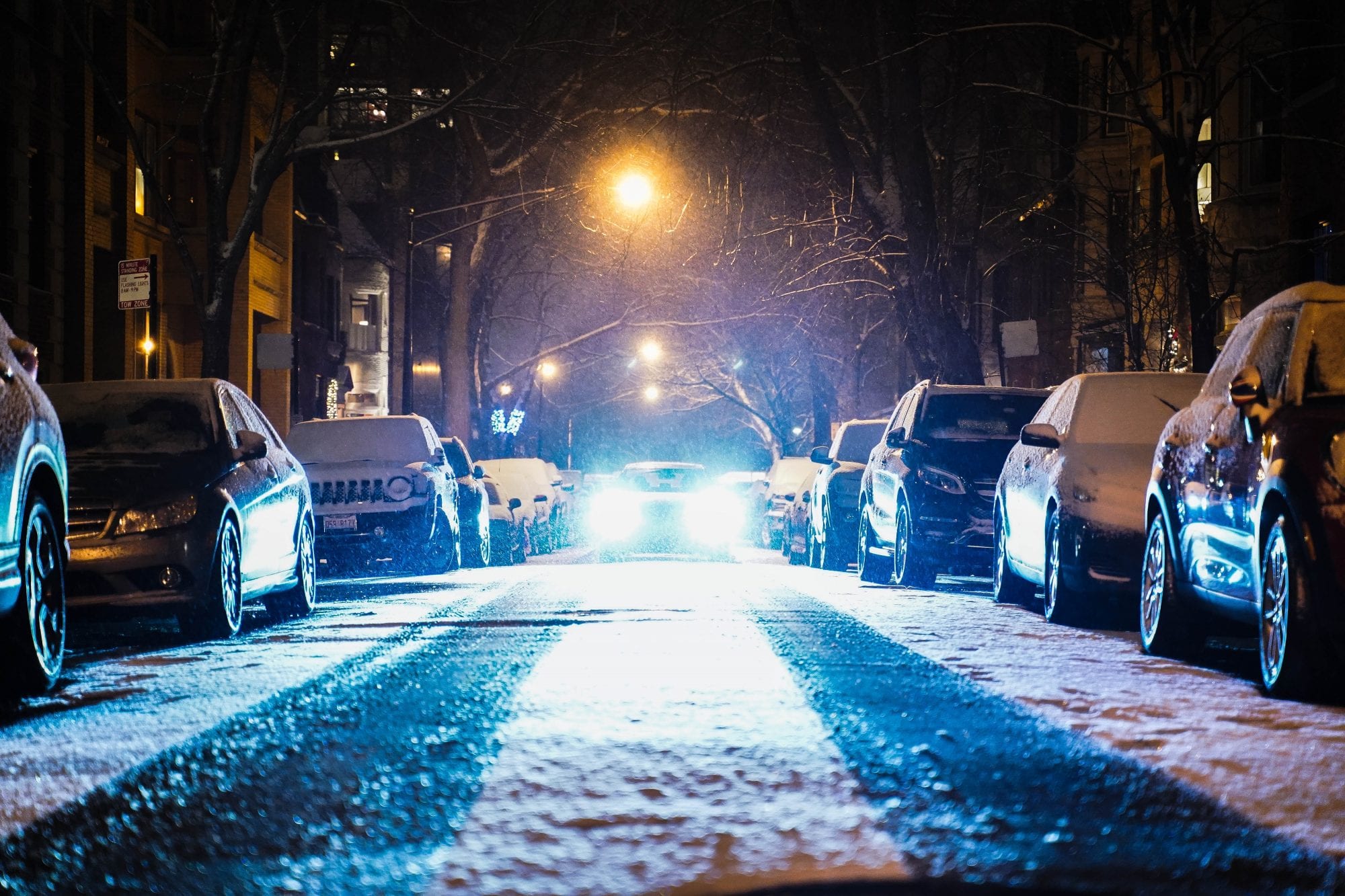
Tips for Driving in the Winter Darkness
As winter approaches, we look forward to the season of hot chocolates, festive celebrations, and the many cosy nights perched beside the fireplace. However, the days become shorter as the sentence “it gets dark so early now” is echoed in every household. This means that many of us will find ourselves driving in the dark more regularly. Whilst this isn’t foreign to most drivers, it is important to be extra vigilant to stay safe during winter months as in the UK, around 40 per cent of collisions occur during hours without sunlight[1]. Here, the Classic Car Finance Team at Cambridge & Counties Bank have come up with some useful reminders to help you stay safe on the roads after dark.
Keep your speed down
Whether you know the roads well or not, visibility at night is limited to around 500ft with main beam lights, and 250ft with regular lights[2]. Therefore, it’s important to lower your speed during the darker hours as sight is reduced and it becomes more difficult to anticipate what is ahead. Additionally, when driving in the early hours of the morning, roads are inevitably quieter which offers the perfect opportunity for wildlife to come out from hiding, putting both them and you at risk of a collision. Driving at a lower speed will allow you to slow down or stop at a much quicker rate, potentially helping avoid any nasty accidents.
Plan your journey in advance
When embarking on unknown journeys during the winter months, it is essential to plan ahead. Whilst a sat nav is great for direction, at times they can be unclear, especially during night-time when road markings and side roads are less visible. It’s important to consider taking a look over the route prior to setting off. For example, there may be roadworks, which could lead to a complicated diversion or the route may take you through busy and congested city roads, which may cause a more stressful drive. Research the time it will take to complete the journey and then compensate with an extra half an hour, to allow for delays and traffic. It is also worth allocating time to de-ice and de-mist the windows to ensure you have a clear vision and the vehicle is safe to drive.
Pack the essentials
With the UK reaching much colder temperatures during the winter months, there is a higher probability that your car may experience some mechanical issues. Whilst at times this cannot be avoided, it is important to ensure you have essentials at hand in case of a break down. For example, you must always have your insurance details and drivers licence available, as well as useful items, such as a torch, a power pack for charging phone batteries, reflective triangle, first aid kit, and a warm blanket in case of an emergency.
Prepare your car
In winter, you should be more vigilant than ever when checking over your vehicle. It is recommended to regularly check your tyres for punctures, your lights to ensure functionality for optimum visibility during the darker months, as well as your battery, which can be drained if the lights are left on. You may even want to invest in a set of winter tyres which provide better grip in wet and dry conditions during months where the temperature is typically low.
Keep your eyes healthy
One of the most important checks to carry out before driving a car, especially during the darker hours, is your vision. As visibility is already hindered with darkness, your eyesight must be the best it can be to ensure for the safest possible drive. Many people go months or even years without having their eyes tested, however, this can be extremely detrimental to not only your eyesight, but also to your safety on the road. Carry out regular checks with yourself to assess how healthy your eyes are , you should be able to clearly read number plates and signs from a 20.5 metre distance (or 5 car lengths), as well as timing an annual eye test for the Autumn time, ahead of winter.
Many car accidents and collisions during winter months can be avoided by simply planning ahead and taking extra care to prepare your vehicle. By keeping your distance, reducing speeds, and packing the essentials, it should dramatically reduce the risk of danger when driving in the dark. Although weather conditions are more turbulent during winter months, in Britain, we are used to dark nights and rainfall all year round, so it is worth incorporating these tips into your regular driving habits.
[1] https://www.rospa.com/rospaweb/docs/advice-services/road-safety/drivers/driving-at-night.pdf
[2] https://www.nsc.org/road-safety/safety-topics/night-driving



Lucy
These are great tips for winter driving, I’m not a fan of driving in the darker nights, like you said, visibility isn’t brilliant and it’s important that we drive carefully! x
Lucy | http://www.lucymary.co.uk